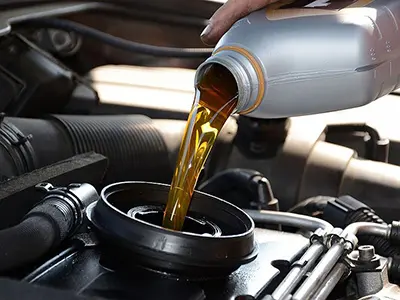
For modern cars, it is normal practice to add oil between regular oil changes. And the more mileage the car has, the more oil you will have to add and do this more often. However, it is not always possible to find the ideal oil for your car, especially during road trips. This article aims to explain the intricacies, tricks and warnings when adding oil to cars.
Using different brands of oil
If you must add a small amount of oil, experts say you can use almost any oil. Ideally, you should purchase oil of the same viscosity as that used in the engine, and which meets the same requirements (ACEA, API, ILSAC). But if you add different brands of oil periodically, it can create problems in the long run.
Consider your car's vulnerable spots
Each car has its own weaknesses or features that need to be taken into account. For example, many Volkswagen cars are prone to premature formation of carbon deposits on the rings, while Nissan valves often suffer, and Toyota and Ford - this is the presence of narrow oil channels. Car manufacturers recommend oils that reduce the likelihood of these particular problems occurring, and to extend engine life, it is recommended that you follow these recommendations.
Warnings when adding oil
Before adding oil, always check the fluid level on the dipstick. This will help prevent overflow, which can lead to expensive repairs.
Despite the recommendation that any oil can be used for one-time top-up, it should be remembered that long-term use of different brands of oil can cause problems.
Remember that adding oil does not replace its complete replacement in a timely manner. Over time, the oil loses its properties and must be completely replaced.
Oil specifications
Oil specifications play an important role in engine performance. They indicate the characteristics of the oil, including its viscosity, lubricity, thickness and other properties. As already mentioned, it is important to choose an oil that meets your vehicle manufacturer's specifications. Oils can have different properties depending on their base (mineral, synthetic or semi-synthetic).
Complex lubrication oils
Oil with complex lubricant additives is intended for use in extreme conditions. These conditions include high temperature, speed and pressure that affect oil performance. If you frequently ride in challenging conditions, such as racing, off-road riding, or constant high-speed driving, consider using a compound lubrication oil.
Pour or top up, when to do it
If the engine oil level drops below the minimum level on the dipstick, immediately top it up to the recommended level. But don't overdo it. Too high an oil level can cause foam to form, which will impair the lubricating properties of the oil.
Don't forget the importance of regular replacement
Despite regularly adding oil, it is also important to completely change it regularly. On average, this should happen every 5,000–10,000 km, but specific recommendations depend on the vehicle manufacturer, model and operating conditions.
Adequate dosing of oil in a car is an important and responsible procedure that requires not only attention, but also serious responsibility. Doing this task correctly helps ensure long engine life and increases the life of your vehicle.
Remember: Why you shouldn’t leave your car unused for a long period

